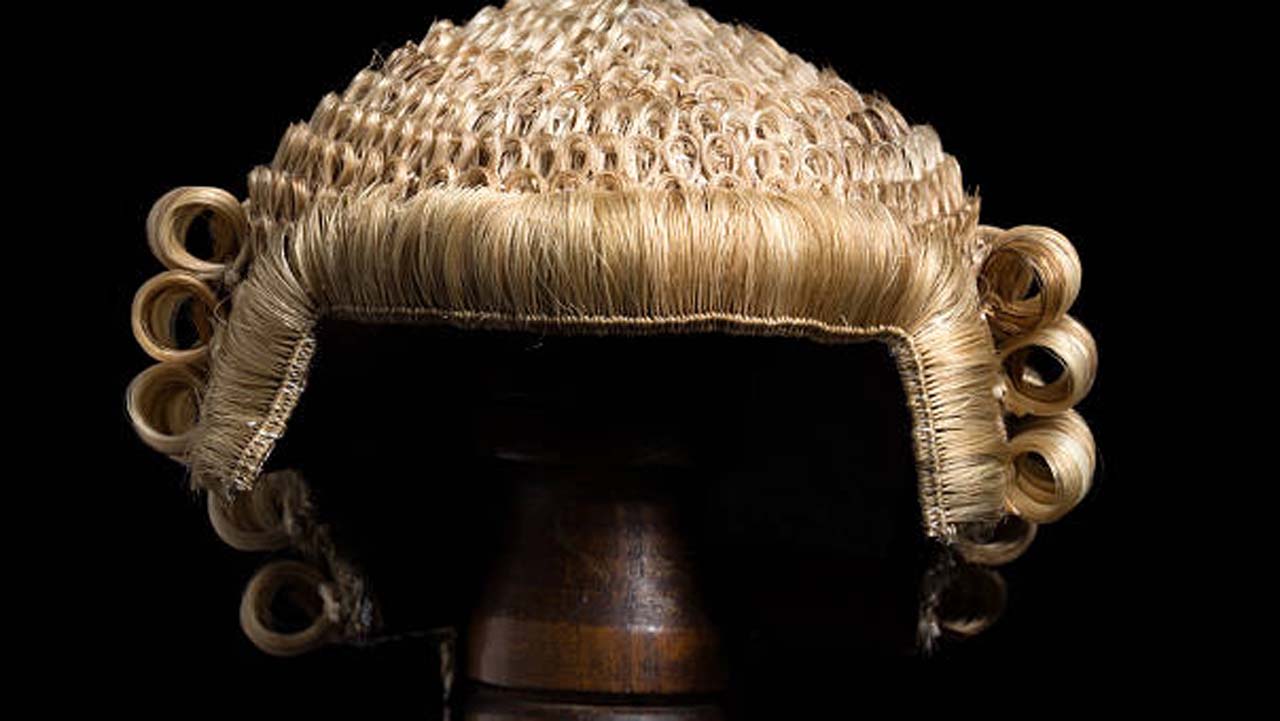Forget November 21, 1960. There are many other important dates and milestones that hold historical meaning in the life story of Mallam Nuhu Ribadu, the current National Security Adviser (NSA) to President Bola Ahmed Tinubu.
They include 1980, when he gained admission into the Ahmadu Bello University, (ABU), Zaria and 1984, when he was called to the bar and enrolled as a Solicitor of the Nigeria Supreme Court; even January 1, 1986 that he became an Assistant Superintendent of Police, up to 2002, the year he occupied the office of Head, Legal and Prosecution Department of the Nigeria Police Force (NPF).
What can easily be deduced from Ribadu’s rise in his professional ladder is the fact that he expanded on his academic training in law through an impactful and wide-ranging hands-on experience in the maintenance of law and order within the Nigeria Police.
But the defining moment for the Yola, Adamawa State-born police officer came in April 2003. That was when he assumed office as the first chairman of the anti-graft body – the Economic and Financial Crimes Commission (EFCC). Earlier on November 29, 2002 – that was eight days after he turned 42 years of age – then President Olusegun Obasanjo announced his appointment to head the novel panel to tackle official graft and financial despoliation of Nigeria’s economy.
The argument as to whether Ribadu made EFCC a name to reckon with or that EFCC made the man what he has become in national and global circles as an anti-corruption czar, verges on similar causal loop of chicken and egg controversy. However, evidence that the elite police officer did a good job in the office of EFCC chairman could be seen in his reappointment for a second term by Obasanjo in 2007.
Nonetheless, events in the life of the chief corruption-fighting officer were to open new windows of opportunities for him. Either on account of his zealous pursuit of corrupt people, who happened not only to be mostly politically exposed persons but also big guns in society, what could have been Ribadu’s second stanza of tour of duty ran into troubled waters.
Many politicians, particularly state governors, ministers from very juicy federal ministries, senators and state governors who tended to dismiss Ribadu on account of his weight had to cringe and clabber by what the slender but personable police officer said. His was not an easy resort to braggadocio, but a style driven by scrupulous search for exhibits and facts.
And, with time, the man’s clinical forensic procedure began to earn him plaudits, just as the big men began to cry. As things panned out, the big men were not limited to sleazy politicians alone. The fat cats in the banking industry – those that served as the umbilical cord of financial corruption – were also caught pants-down.
Yet, as the new panel on sleaze continued to net the conviction of many high-profile financial criminals in court, including his boss, fear of him increased, just as those on the run and in the shadows of the Commission’s dragnet continued to plot against Ribadu, the team lead.
Those who cared to interrogate his motivation discovered that Ribadu was pained to the marrows that from the year of his birth to when he assumed office as EFCC chairman, more than $380 billion found its way into sundry private pockets, offshore and dingy bank accounts and ladies’ Gucci bags.
Given the number of culprits he sent to jail and amount of money recovered for the Federal Government, those whose bribes were rejected decided to vote with their passport and visa into foreign lands. Others remained in their closets convulsing in fear, wishing that harm befalls the anti-corruption czar or at worst, that he should be sacked so that they can breathe easily and frolic with their ill-gotten wealth.
Perhaps, the one singular exploit that exposed Ribadu for both vilification and veneration, was the issue of $15 million bribe to stanch investigation into the massive sleaze by a state governor from one of the South South states. Was such a humongous amount offered as bribe? If so, did Ribadu receive or reject? Did Ribadu have a change of mind and sent the money to the Central Bank? Where is the evidence that the said $15 million actually came from the governor as alleged?
It should be noted that while the back and forth over the famous $15 million bribe lasted, an attempt was made on the life of the EFCC chairman. Only Ribadu himself can say whether his decision to leave the country was based on the two assassination attempts or hurdles placed on his patriotic performance of his assignment as EFFC’s number one enforcer and policy executor.
But the fact of the matter remained that his promotion to the rank of Assistant Inspector General of Police by the outgoing President Obasanjo administration provided fresh supply of dry gunpowder for Ribadu’s detractors to combine in new conspiracy plots.
Between framing the promotion as unmerited and offering him an opportunity to expand his leadership training and professional learning, Ribadu was programmed for further training. But despite the official position that the EFCC chairman, who had then just been encouraged with another term, was entitled to the course, many Nigerians believed that Ribadu’s admission to the National Institute of Policy and Strategic Studies (NIPSS) at Kuru, near Jos, was but a stylish way to get him out of the commission.
Eminent stakeholders that described Ribadu’s study leave as politically motivated regretted that the creative graft fighter was not commended for achieving much with just a 32-man team that pioneered EFCC into a renowned fraud-fighting force for Nigeria.
Like a little star that was destined to twinkle in many corners, Ribadu’s controversial dislocation from both the EFCC and the Nigeria Police Department proved salutary in many respects. For instance, during his self-imposed exile, the former EFCC chairman took up a fellowship at the Centre for Global Development (CGD).
CGD, which is a UK-based think tank committed to providing independent non-partisan research, has as its focus global poverty reduction. Coming to CGD, therefore, was like opportunity meeting willingness, because Ribadu had already seen first-hand the nexus between corruption mass poverty.
With his experience as an anti-graft operative coupled with training in law, Ribadu matched CGD’s philosophy of function, especially in its aim at reducing global poverty and inequality. What is more, Ribadu was an asset for the organisation on account of its commitment to transparency and professionalism founded on personal integrity.
So, out of what was perceived as a downward slide in his rising profile, Ribadu turned the accident into a great opportunity to retool himself and equip himself for future challenges. It was perhaps based on the challenges he saw and the capacity he built through the fellowship with CGD that the former crime hunter delved into partisan politics.
His days in exile, spent acquiring new knowledge and expanding his world view, all cumulated in his desire to exemplify disruptive leadership, which he has always cited as bane of the third world. That yearning paid off in his adoption as the Action Congress of Nigeria’s (ACN) presidential candidate for the 2011 general election.
On that fateful January 14, 2011, Nigerians saw a new model Ribadu grabbing a golden opportunity to continue the search for sanity in governance and leadership. Although that venture did not yield desired fruits, the young lawyer saw Nigeria from another but deeper standpoint: Politics.
It was that innate desire to further impact on Nigeria through leadership that brought Ribadu so close to the playmaker of Nigeria politics, Asiwaju Bola Ahmed Tinubu. And having come close to the notable head-hunter, it was not surprising that upon becoming the President on May 29, 2023, Tinubu did not waste time to tag Ribadu as the first ever non-military National Security Adviser (NSA).
The extramural experiences and leadership lessons he garnered after his removal from EFCC headship must have prepared the former police officer for the new role. As NSA, it was not surprising also that the major breakthrough that Ribadu has achieved in office was the arrest of some prominent operatives in the Cryptocurrency exchange gymnastics – Binance – that was engaged in security and exchange market manipulations.
Both in education, professional training, carriage and comportment, Mallam Nuhu Ribadu has become a model for young and emerging leaders to emulate. As the quiet and reform-minded TED fellow turns 65 on Friday November 21, it is obvious that the star performer will continue to twinkle.






